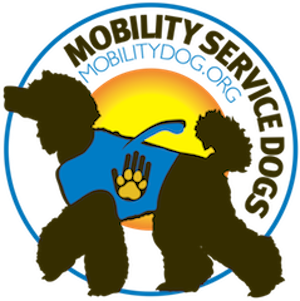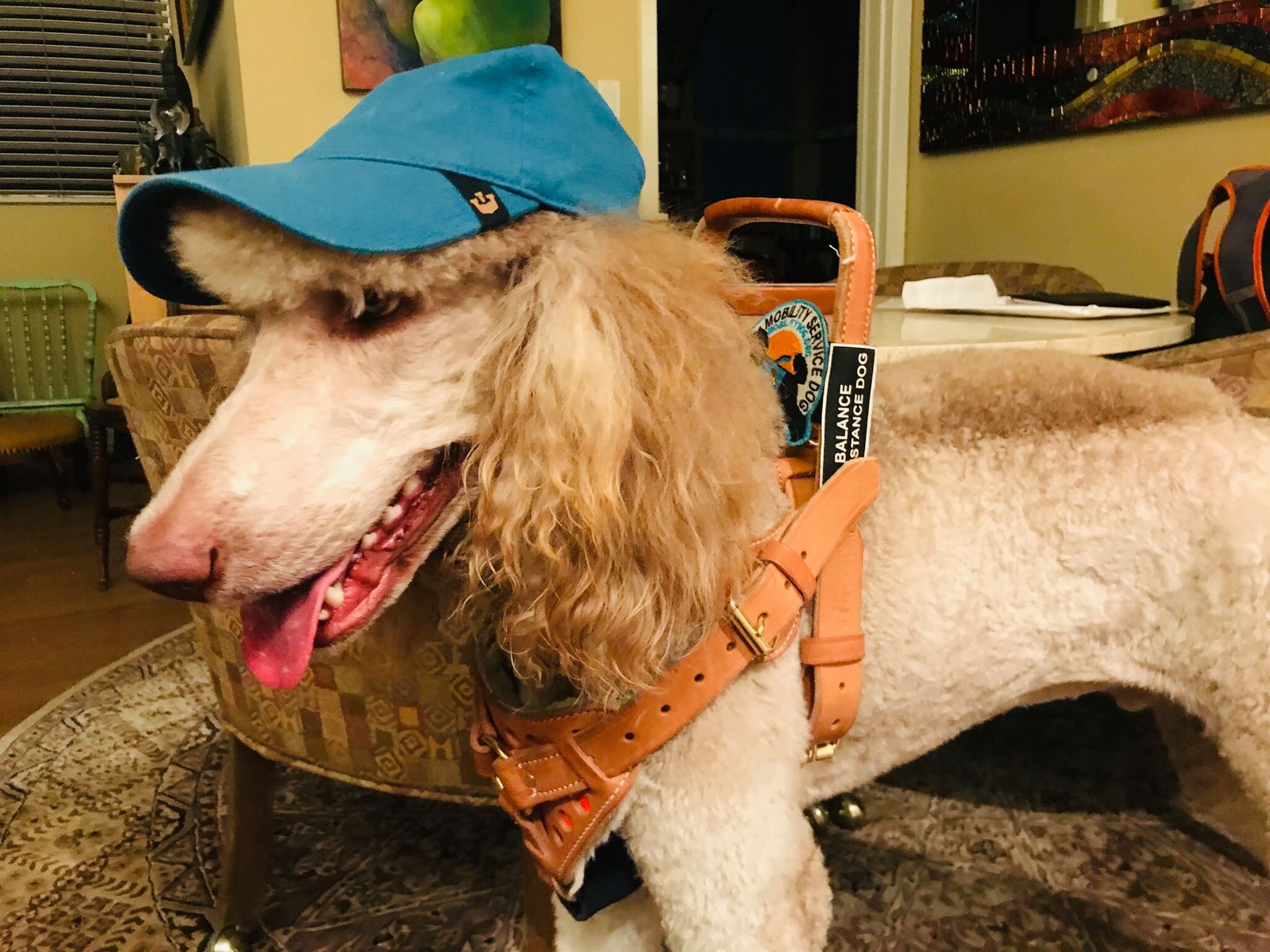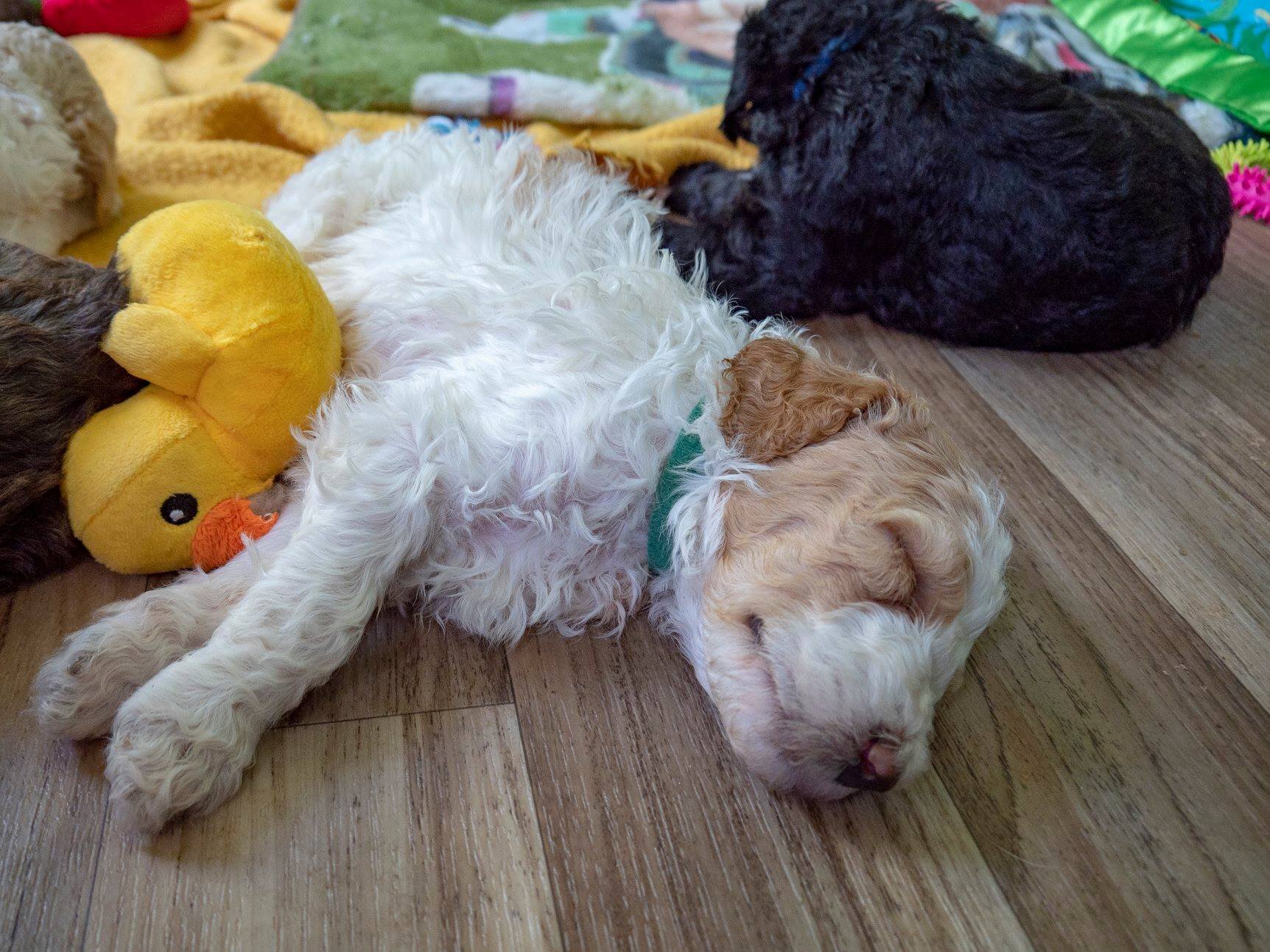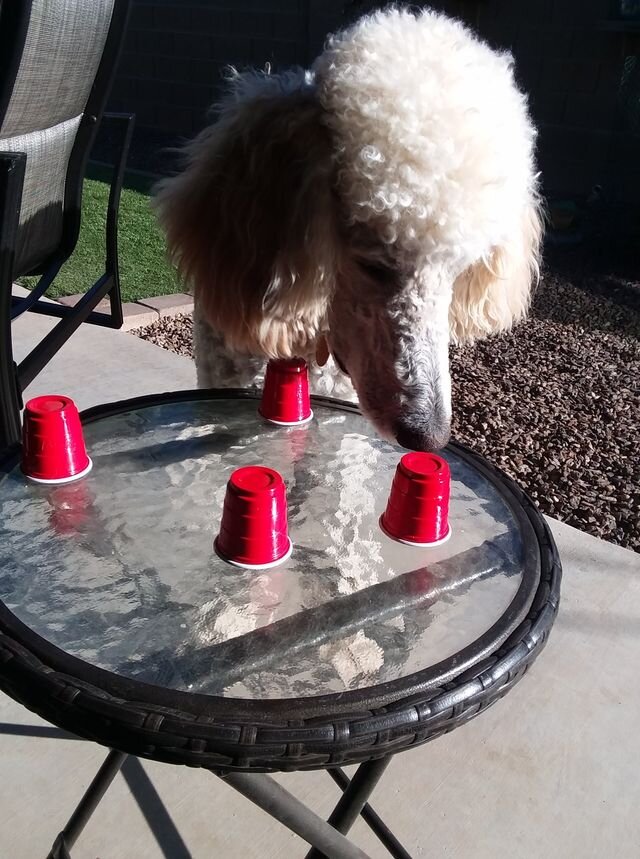Service Dogs: Is it All Work and No Play?
To an outsider, it may seem service dogs work all the time. But to fully honor and nurture the dog’s spirit, it is essential they get to play, relax and recuperate!
Even hard-working service dogs need to play and relax! These incredible working dogs must get plenty of downtime to just “be a dog.”
All Work and No Play
An old proverb (as far back as 1659) reminds us, “All work and no play makes Jack a dull boy.” Not only does this apply to people but is just as true for the working dogs in our lives. All working dogs, including service dogs, need adequate downtime. A life that balances their “job” with time to relax helps these canines maintain the physical and emotional wellness needed for a happy and confident dog! In addition to supporting the dog’s best life, a balance of work and relaxation allows the service dog to be in peak condition for effectively supporting their disabled handlers navigate the world and life.
K9 Relaxation: What Science Says
In general, any dog who is not allowed enough downtime to adequately rest can begin to exhibit behavioral issues. The more active a dog is physically and mentally, the greater its need for adequate rest time in a safe and comfortable space to completely rest its minds and bodies. When there is not enough downtime, rest or sleep, canines may become aggressive, anxious and stressed
Did you know that dogs use sleep to learn just like we do?
During REM sleep, the dog’s brain also processes what they learned and commits it to memory!
Next, let’s meet the Founder of Mobility Service Dogs and learn how she ensures her service dog has adequate time to just be a dog!
The Service Dog’s Life: Phoebe and Beckett
In 2010, Founder, Janie Lynn Heinrich’s life changed forever. A freak accident at a grocery store resulted in a spinal cord injury that confined her to a wheelchair. Since that time, two service dogs, Phoebe and Sir Samual Beckett have joined Janie on her road back to independence! Phoebe, a 2-year-old Standard Poodle trained to become part of Janie’s first “dream team!”
When Phoebe retired at age ten, Beckett came into the picture in 2018. Janie fondly remembers, “Phoebe taught Beckett as much as the Service Dog Trainer did!” Today, Beckett is just 4 years old and Janie’s Working Service Dog.
But like any team, Janie is focused on ensuring her service dog’s best well-being and happiness which includes play and downtime.
Service Dogs Need Play Too!
Janie puts it simply, “It is always about your Service Dog; their health, welfare and safety must always come first” The best service dogs live to work and find both fun and joy in their “job.” But handlers also need to know when it is time for the service dog to switch “off” and enjoy some fun and relaxation.
“A service dog can be on all day if you pay attention to your teammate and honor them with laughter, joy and praise.”
Janie Heinrich, Founder, Mobility Service Dogs
Downtime FUN for ALL Dogs!
“A happy Service Dog makes the Best Service Dog!”
Janie Heinrich, Founder, Mobility Service Dogs
Beckett, Janie’s current Service Dog, enjoys a variety of fun activities when he is not working. You can also use these same fun activities with your dog whether they are a Service Dog or not!
Playing ball
Muffin tin game
Allowing free exploration time outside
Playdates with his Poodle friends, Harper, Brie, Sawyer and Maya
One-on-one (non-working) walks with his other favorite humans
Hide-and-Seek
Outdoor gatherings with people where he can just mingle while embracing human touch and conversations
Please Support our Life-Changing Work for the Disabled Community!
Just text PAW to 44-321 to Donate Now!
The MSD-WCP advances FUNctional independence for the disabled community through service dogs, education and empowerment.
Learn more about Solutions for Movement and Owning the “Abilities” in Disability!







